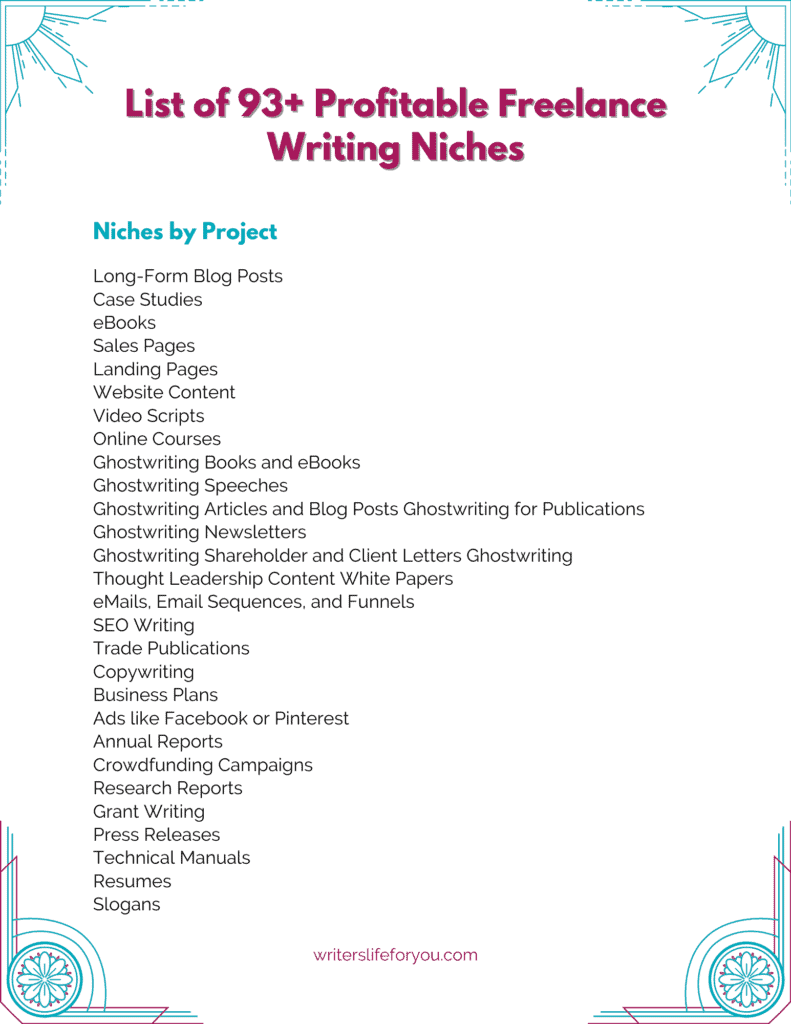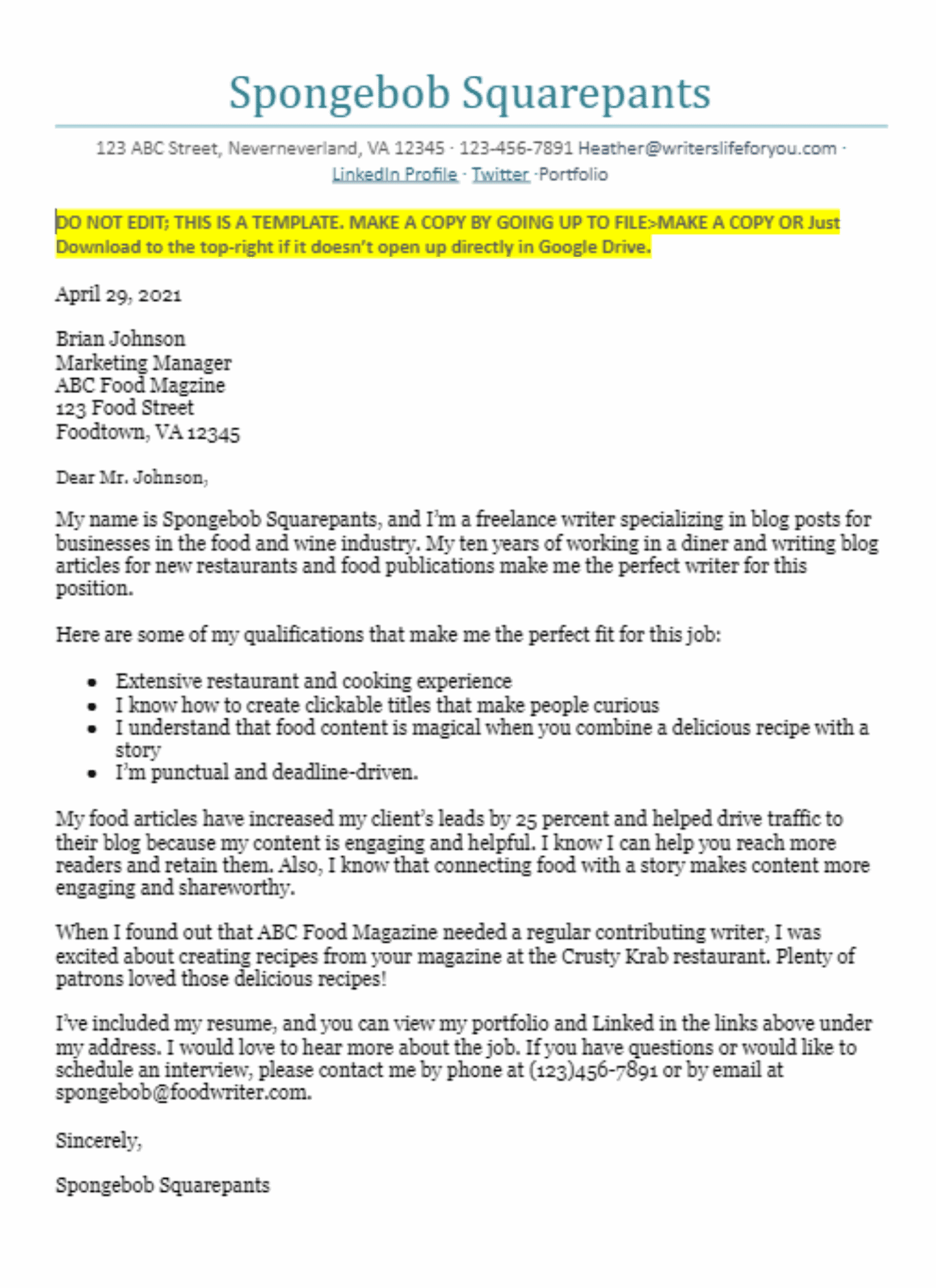Learn the top tips for getting out of a writing rut.
Falling into a writing rut isn’t fun when you write for a living. Whether you’re low on ideas, struggling with a specific piece, or just can’t seem to write anything at all. Feeling stuck can make you worry about your career as a freelance writer, but don’t worry; writer’s block happens to most writers at some point.
How do you diagnose yourself as being in a writing rut? Here are a few common signs:
- Struggling to focus
- Feeling hopeless or overwhelmed
- Constant fatigue
- Tendency to procrastinate
- Lack of ideas
- You find what you’re writing boring
- You keep writing the same stuff over and over without experimenting
If you’re seriously struggling in your writing life (and this affects your ability to work and make a living), please consider seeking professional help — mental health struggles are no joke!
If, however, you think that handling this situation is within your own abilities, I suggest a few different strategies for fighting back against writer’s block. These ideas will help you with getting your creative juices flowing again.

1. Change your writing environment
Are you stuck on your own writing or article, or are you stuck at your desk? Whether you have a dedicated office space or are working out of your favorite coffee shop, your environment can have a huge effect on your productivity. You may have built for yourself a writing place where you feel cozy and comfortable, and you don’t see any reason to write elsewhere.
But sometimes, what you need is a hard reset. Being stuck physically can exacerbate being stuck mentally. If you’re used to working in your office, try writing in your living room for the day.
Or try changing coffee shops or co-working spaces if you work outside your home. The change of scenery can put you in a different headspace and be the key to getting you writing again.
Moreover, switching up other parts of your routine can also lead to surprisingly productive results and end writer’s block.
2. Change your writing time
Just like changing your physical location can be a good way to reset yourself, altering the time at which you write can help jumpstart your motivation.
Perhaps you’re the kind of person who has previously worked on a consistent schedule. Say you work by writing in the morning and editing and responding to emails in the afternoon. Try switching things up, as the novelty can jumpstart your motivation and get you back on track.
But maybe you don’t have a set routine, so in that case, try to create one for yourself and see if it’ll help you out of a rut. Knowing that, no matter if you feel inspired or not, you’ll sit to write every day at 9 AM, for example, might be what it takes to get you to get back in your flow.
Don’t be afraid to try out different schedules, too, if your first attempt doesn’t yield results. It can be a process to find what works best for you.
Of course, it’s okay if this doesn’t work. Sometimes where and when isn’t the problem as much as what you’re doing is.

3. Change gears
If you find a piece isn’t working, it’s okay to put it aside for some time and do something else. Pick a different project or topic to work on and focus on that instead. It can be easier or harder than the task you’re stuck on.
The point is not to dwell on the article you’re having trouble with and clear your mind instead. The forward momentum you may gain here could be transferred into the troubling piece and might help you out of your writing rut.
When your mind is otherwise occupied, it can freely think about problems without frustration or judgment. This way, you could find a solution without agonizing over it.
If the thought of writing itself is causing the problem, try doing something else entirely: a chore you’ve been putting off for a while or taking a long walk. When you return to your computer, you can approach your work with fresh eyes. If that doesn’t help, getting your thoughts out of your head might be what you need.

4. Try writing from a different viewpoint
If you’re working on creative writing or crafting a novel, sometimes it can help to switch viewpoints or write from a different character’s perspective. If your story is in third person, try writing it in first person or vice versa.
Doing this is a simple fix and can help you see things differently, as always writing in the same person can put you in a writing rut. This idea also helps if you can get past the one story you’re working on OR talk about writing a book but never start.
5. Talk it out
No matter what you do, sometimes writing is just too hard. You can’t get your ideas in order, you’re not sure what’s causing your writer’s block, and you’re generally just stuck inside your head with seemingly no way out.
In this case, it can be beneficial to stop writing and find someone to talk your thoughts through with, 一 perhaps a friend or a fellow writer. Just by laying it all out, you might find a way to untangle yourself or at least identify what’s causing the problem.
Thinking out loud means you’re not just letting all these vague thoughts float around and instead are actively identifying them and arranging them in an order that makes sense.
If you can’t find anyone to talk to or are worried about bothering people, you can take a page out of a software developer’s playbook and rubber-duck it. Find a rubber duck (or another suitably anthropomorphic object) and explain what’s bothering you to it.
Go systematically through each part of the problem, and by the time you’re finished, you might realize you’re telling it what you’re going to do next.
Often, when we’re trying to explain something, we’re puzzling it out ourselves as we go. The point of this exercise isn’t necessarily to get feedback from someone else but to unravel tangled thoughts.
You can also try a similar approach to writing if talking isn’t your thing.
Related: How to Set Your Freelance Writing Rates in 2023 Like the Pros Do
6. Brain dump
There’s no better name for this method than a “brain dump.” Set a timer for a short period (ideally, 5-10 minutes) and write as much as you can about your project. Don’t worry about the quality. Just get all of your ideas out, no matter how fuzzy, simplistic, or undeveloped.
When the timer goes off, you have something to work with. Using what you’ve written, you can build an outline and flesh out what you already have with new ideas. Or you might have figured out where the problem is and can go back and fix it. You can also do this to explore if the idea you have really works or not.
Either way, just writing everything out, much like talking, can jumpstart your process if you’re blocked. But there is also a way to do a structured brain dump — and it could be a helpful method to integrate into your overall routine.

7. Pomodoro method
You’ve likely encountered the Pomodoro method before as a time management technique for staying focused. However, it can also be useful for writers experiencing a block.
Here’s how it works: try writing for 25-minute intervals with a five-minute break in between. After you’ve completed four consecutive work intervals, you can take a longer 15 to 30-minute break. Then rinse and repeat until you’ve made it through your task or workday.
In a way, Pomodoro is like a brain dump, just longer and with more structure. You’re trying to accomplish as much as you can under time pressure without stressing over a single sentence or a minor detail for an hour (been there, done that!).
If things aren’t working out, there are also set break times which function a bit like a reset. You can pause, recalibrate for a moment, and try again in the next work interval.
This process isn’t about reaching a word count goal but completing each 25-minute section. It can take some of the pressure of production off your back and give you space to try new things.
Even if you don’t get anything usable from your sessions, you still have proof that you were working and you tried. And that is just as important for maintaining your motivation as you work through whatever is blocking you.
8. Immerse yourself in music, movies, or books you enjoy
A writing rut is often about a feeling of inner aridity like the well of inspiration has dried up. To replenish your inspiration and motivation, soak up stuff you find enjoyable — movies, TV shows, books, or a good, atmospheric playlist.
If you choose to revisit a series or novel you love, you’ll find comfort in your favorite familiar characters — otherwise, discovering something new never fails to deliver delight and exhilaration.

9. Introduce an element of play
When our inner critic doesn’t stop judging our abilities or productivity levels, it’s even harder to get productive. In the past, I’ve managed to convince myself that I am completely unable to write, that I have never been able to write. I’m no Hemingway, but now I know that that was just my self-esteem and self-doubt speaking.
To unblock that feeling of being stuck and let go of your perfectionism, consider how you could remove some of the pressure from your writing and remember the aspects you found enjoyable and fun. How can you play more while writing?
Are you working on a blog post? Ask yourself what jokes you can include or if there are relevant scenes from movies you could include with a funny caption. Just trying to write in your free time? Try using a writing prompt just for the fun of it, without expecting the result to be prize-winning.
Try writing a journal entry about a family member you love or about your pets’ latest antics. Let the words flow without judgment, and maybe you’ll flow right out of your writing rut.
10. Sign up for a class to improve your skills
This idea is a more drastic option to launch yourself out of your writing rut. Signing up for a writing class can help you enter an environment where you’re surrounded by other writers and expected to write to an external deadline.
The pressure can be great, so if you’re feeling fragile, this isn’t the best choice for you, but if you’re up for a challenge, classes can prove inspirational. They’re also a great place to meet your future writing buddies and beta readers, as well as network with like-minded people.

Final Thoughts on Writing Rut
These are just a few different things you can try to help you out of your writing rut. Depending on what is causing your block, one or more strategies might be useful. Don’t be discouraged if something doesn’t help. It can take time to find a method that works and find your rhythm again.
Related Posts to Writing Rut
17 Best Gadgets for Writers That Make the Best Gifts
93+ Popular and Profitable Freelance Writing Niches for 2023
How to Make Money Ghostwriting: The Secret Tips No One is Telling You
A Content Creation Framework That Helps You Make More Money Every Day
18+ Imposter Syndrome Journal Prompts to Help Increase Your Confidence as a Content Creator
Content Repurposing Workflow: How to Remix Your Content to Make More Money With Every Piece
Project Management for Solopreneurs: Top 9 Project Management Tools That Make Life Easier
Is Upwork Good for Beginners: The Ultimate Guide for Freelancers + The Secrets No One Tells You
450+ Fun and Awesome Summer Blog Post Ideas for All Niches
Rose Atkinson-Carter is a writer with Reedsy, advising authors on all things publishing, from answering questions like “what is literary fiction?” to reviewing different writing software and demystifying the publishing process.
Now you know the secrets to getting out of a writing rut.






















